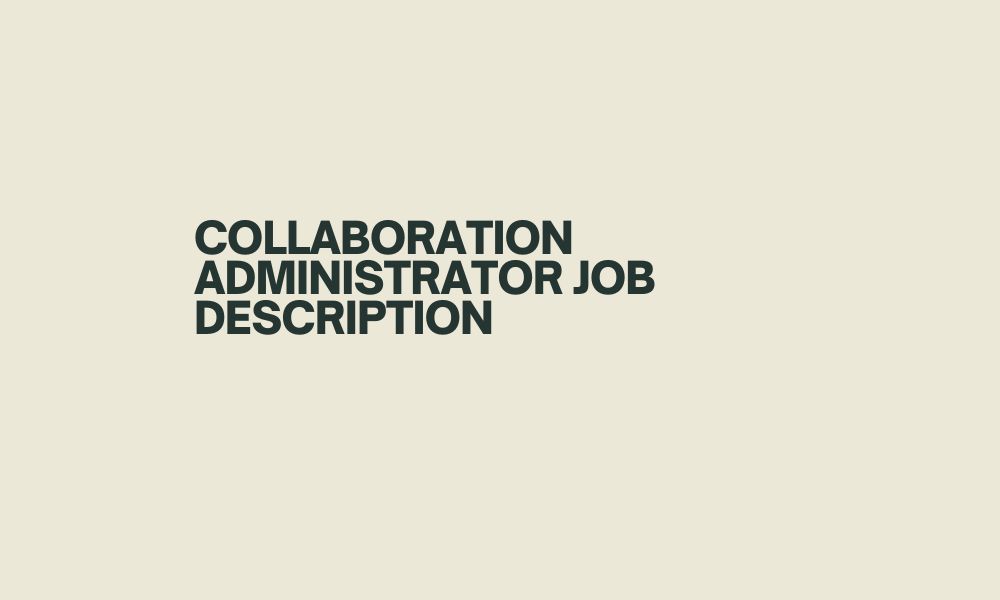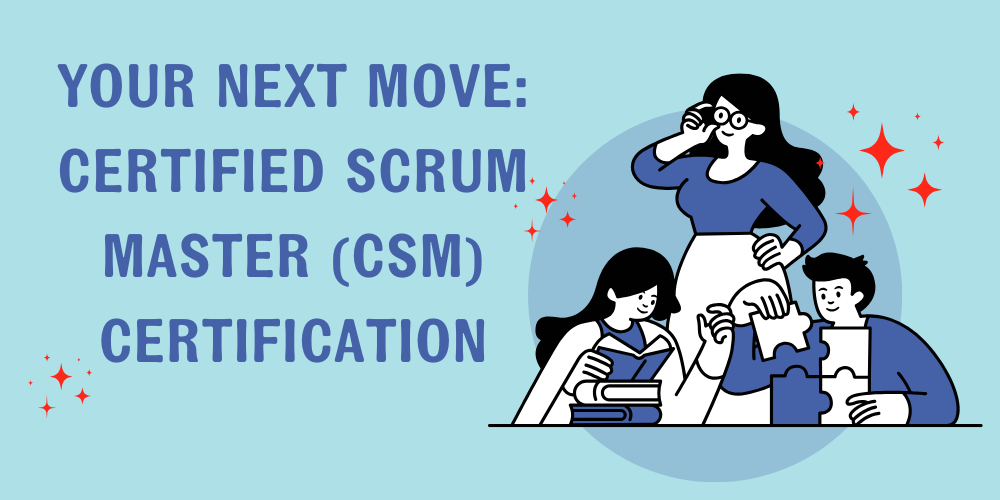TRUSTED BY THE SMARTEST TEAMS IN THE WORLD FOR CERTIFIED CANDIDATES
SPOTO Blogs
Useful learning materials to become certified IT personnel
-
- 696
- SPOTO
- 2025-07-21 14:50
-
- 763
- SPOTO 2
- 2025-07-21 14:42
-
- 698
- SPOTO 2
- 2025-07-21 13:15
-
- 231
- SPOTO
- 2025-07-18 15:44
-
- 572
- SPOTO
- 2025-07-18 14:41
-
- 779
- SPOTO 2
- 2025-07-18 13:19
-
- 643
- SPOTO 2
- 2025-07-18 11:50
-
- 629
- SPOTO
- 2025-07-17 15:22
-
- 1032
- SPOTO 2
- 2025-07-17 15:18
TRUSTED BY THE SMARTEST TEAMS IN THE WORLD FOR CERTIFIED CANDIDATES
SPOTO Blogs
Useful learning materials to become certified IT personnel
-
- 696
- SPOTO
- 2025-07-21 14:50
Table of Contents1. What is a collaboration administrator?2. Job Outlook for collaboration administrator3.Salary of collaborative administrator4. What kind of certification can help become a collaboration administrator? Collaboration administrators are responsible for configuring, managing, and maintaining the collaboration platforms used by the enterprise (such as Microsoft 365, Teams, SharePoint, Zoom, Slack, etc.). They ensure that these systems are always available, secure, and efficient, and are key roles in ensuring that the organization's daily communication and collaboration are not interrupted. This article will take you to a deeper understanding of the role of collaboration administrator. If you are interested, please continue reading. 1. What is a collaboration administrator? Reporting to the Head of Collaboration Services Operations, the Collaboration Administrator is an Operations Resource. The Collaboration Administrator will serve as an Operations Resource to monitor, fix, and remediate issues not resolved by frontline troubleshooters. As a core member of Collaboration, this position will be responsible for providing world-class support to employees around the world. The main responsibilities of collaboration administrator include supporting users to successfully complete relevant project implementation and production environment deployment; they need to work closely with the front-line support team to carry out training and knowledge transfer, and assist in solving various problems encountered by customers during use; during this period, they continue to monitor and maintain core collaboration SaaS solutions to ensure system performance and stability. At the same time, it is necessary to review, utilize and make suggestions for optimizing solution documentation (knowledge base) to improve event handling efficiency and document quality. Collaboration administrator also need to regularly review the operation of the monitoring and alarm system to ensure the health of the system, share experience and information within the team, and promote continuous improvement. In addition, this position requires identifying, recording and optimizing various operating processes, and exploring innovative methods to improve work efficiency. 2. Job Outlook for collaboration administrator The job outlook for collaboration administrators, often categorized as network and computer systems administrators by the U.S. Bureau of Labor Statistics (BLS), is expected to decline slightly over the next decade. The BLS projects that network administrator positions will decline by 3% from 2023 to 2033. Despite the projected decline, there will still be approximately 16,400 job openings each year. In summary, while the traditional role of a collaboration administrator may decline slightly, adapting to technological advances and acquiring specialized skills can open up new avenues in the IT field. 3.Salary of collaborative administrator The salary range for this position is $77,067.00 to $105,968.00 (assuming full-time employment). The starting salary for the successful applicant will depend on a variety of job-related factors, including but not limited to geographic location, market demand, experience, training, and education. Benefits for this position depend on the length of time worked. 4. What kind of certification can help become a collaboration administrator? CCNP Collaboration is a globally recognized standard for advanced network certification and professional validation. When you choose CCNP training, you are investing in a certification that is trusted by employers in all industries around the world. This certification not only enhances your technical expertise, but also helps you succeed in job interviews and career development. In other words, CCNP is more than just a certification, it is your strategic partner in getting the next important position in the IT field, helping you become a Collaboration administrator and achieve career advancement. -
- 763
- SPOTO 2
- 2025-07-21 14:42
Table of Contents1. What is Certified Scrum Master certification?2. Benefits of having Certified Scrum Master certification3. Details of the Certified Scrum Master certification4. What Are the Qualifications to get a Certified Scrum Master Certification?5. What is the total cost for training and the exam to become a Certified ScrumMaster?6. Similar certifications of Certified Scrum Master certification This article will introduce you to what a Certified Scrum Master certification is, the details information of Certified Scrum Master certification and the necessary conditions to get a Certified Scrum Master certification. By reading this article, you will gain an in-depth understanding of the Certified Scrum Master certification. 1. What is Certified Scrum Master certification? Certified Scrum Master is a globally recognized agile certification launched by Scrum Alliance. It focuses on verifying the professional ability of practitioners to play the role of "Scrum Master" in the Scrum framework. The core is to enable them to effectively guide the team to practice Scrum principles, eliminate obstacles and promote the implementation of agile practices. Scrum is a lightweight agile development framework that emphasizes the realization of product value through self-organizing teams, iterative delivery and continuous improvement. As the "enabler" and "service leader" of the team, the Scrum Master is not a "manager" in the traditional sense, but a key role responsible for ensuring that the Scrum process is correctly executed, helping the team to solve obstacles and maintaining the team's focus. 2. Benefits of having Certified Scrum Master certification As a basic certification in the field of Scrum, CSM is a "stepping stone" to understanding agile practices. It can better help practitioners master the core language and working methods of Scrum and quickly integrate into agile teams. Through standardized facilitation skills, CSM holders can reduce team internal friction, ensure the implementation of Scrum processes, and improve iterative delivery efficiency and team effectiveness. Certified Scrum Masters can also help practitioners expand their career adaptability. In agile-dominated fields such as the Internet, software development, and innovative companies, CSM is a basic requirement for recruiting positions such as "Scrum Master" and "Agile Coach." Combined with certifications such as PMP, for example, "PMP+CSM" can cover traditional and agile project management scenarios and enhance professional competitiveness. 3. Details of the Certified Scrum Master certification The core structure of the Certified Scrum Master (CSM) certification exam is as follows. The entire exam lasts 60 minutes and is conducted in the form of an online computer-based exam. You can make an appointment at any time and participate anywhere. The exam questions are single-choice questions. The CSM exam does not have multiple-choice questions, judgment questions, or case analysis questions. It focuses on the understanding of the core concepts of Scrum and its application in scenarios. The exam covers the three core dimensions of the Scrum framework, focusing on the ability to combine theory with practice, including the three pillars of Scrum, the five values, and role definitions, the process design and execution principles of Scrum events, and the management logic and collaboration mechanism of artifacts. The core responsibilities and agile practices and scenario applications of Scrum Master. The exam contains a total of 50 single-choice questions. The total score is 100 points. To pass the CSM exam, you must answer at least 37 questions correctly. Results are displayed immediately upon completion. Those who pass can get an electronic certificate on the spot. Those who fail can retake the exam as many times as they want, and they need to pay the exam fee of about US$100-150 each time. 4. What Are the Qualifications to get a Certified Scrum Master Certification? (1) Pre-training: You must attend the "CSM training course" authorized by Scrum Alliance, which is usually 2 days and about 16 hours. It is taught by a certified Scrum trainer and includes practical sessions such as case exercises and team interaction. (2) Examination and certification: Following the training, you must pass an online exam with a score of at least 74%. No proof of work experience is required. Upon passing, you will earn membership in the Scrum Alliance and receive your Certified ScrumMaster (CSM) certification. (3) Renewal requirements The certification is valid for 2 years. You need to accumulate 20 SEUs every 2 years and pay a renewal fee of about US$100 to maintain the validity of the certification. 5. What is the total cost for training and the exam to become a Certified ScrumMaster? The cost of passing the Certified Scrum Master (CSM) certification varies by institution and course and mainly involves course fees, exam fees, and renewal fees. Generally speaking, the CSM certification course fee usually includes the exam fee and two-year membership fee, which includes the standard course fee of $995. During some promotional events, the course fee can be as low as $299, $695, etc. CSM certification candidates are entitled to two complimentary exam attempts within a 90-day testing window. If you fail both times, you will have to pay $25 for each subsequent retake. In addition, a renewal fee of $100 is required when renewing the certificate, and 20 SEUs must be accumulated every two years to renew the certificate. 6. Similar certifications of Certified Scrum Master certification Professional Scrum Master I (PSM I) PMI Agile Certified Practitioner (PMI-ACP) Professional Scrum Master II (PSM II) & III SAFe Scrum Master (SSM) Certified Scrum Professional – Scrum Master (CSP-SM) -
- 698
- SPOTO 2
- 2025-07-21 13:15
Table of Contents1. What is Project Management Professional certification?2. Benefits of having Project Management Professional certification3. Details of the Project Management Professional certification4. What Are the PMP Certification Eligibility Requirements?5. Similar certifications of Project Management Professional certification Curious about the Project Management Professional (PMP) certification? This article explains exactly what the PMP is, delves into its detailed components, and outlines the requirements to earn it. Read on to gain a thorough understanding of this globally recognized project management credential 1. What is Project Management Professional certification? Project Management Professional (PMP) is a globally recognized authoritative certification in the field of project management launched by the Project Management Institute (PMI). It aims to verify the professional knowledge and practical ability of practitioners in the whole process of project planning, execution, monitoring, and closing. PMP certification is based on A Guide to the Project Management Body of Knowledge developed by PMI. The guide integrates the best practices in the field of global project management, covering ten knowledge areas such as scope management, time management, cost management, risk management, and five process groups. 2. Benefits of having Project Management Professional certification The benefits of having a PMP certificate are reflected in multiple dimensions such as professional competitiveness, ability improvement, and industry recognition. As a globally accepted "workplace pass", PMP is recognized in more than 190 countries and regions. It is an important screening standard for multinational companies, large projects, and high-end job recruitment. In core projects in industries such as IT, finance, manufacturing, and new energy, PMP certificate holders are often given priority for recruitment. Whether it is a full-time project manager, project coordinator, technical position transfer management, or a business position involved in a project, the PMP certification can prove that they have a systematic project management mindset and are suitable for a variety of positions that need to "promote the implementation of goals." According to the PMI Global Salary Survey, the average salary of PMP certificate holders is 23% higher than that of non-certificate holders. In China, the salary of PMP-certified project managers in first-tier cities is generally 15%-30% higher than that of non-certificate holders with the same experience, especially in high-paying industries such as the Internet and finance, the premium is more obvious. Having a PMP certificate can also systematically master project management methodology and improve practical ability. Based on the PMBOK Guide, PMP integrates the best practices of global project management, covering ten knowledge areas such as scope, time, cost, risk, and stakeholders, as well as five process groups. Through this framework, certificate holders can transform fragmented experience into a systematic methodology to avoid "managing by feeling". A large number of scenario questions in the exam simulate complex scenarios in real projects, and the preparation process can train practitioners' practical thinking and ability. In the team, certificate holders are more likely to be recognized as reliable leaders. Having a PMP certificate can also enhance industry recognition and professional voice, and gain the trust of the team and management. PMP certificate holders can join the PMI community or local project management association, contact industry veterans, participate in high-end project exchanges, and obtain more resource docking and knowledge updates. In addition, in internal promotions within the company, PMP is often regarded as a proof of "management potential". After technical employees pass the PMP exam, their success rate in becoming project managers is higher; grassroots project managers holding PMP are more likely to be promoted to management positions such as project directors and department heads. 3. Details of the Project Management Professional certification The PMP exam is a computer-based, closed-book exam with 180 multiple-choice questions and a duration of 230 minutes. The exam content is based on the latest version of the PMBOK Guide, focusing on project management principles, performance domains, tailoring capabilities, and agile practices. It should be noted that PMI does not publish specific scores, only "pass" or "fail". To maintain the validity of your PMP certification, you must earn 60 Professional Development Units (PDUs) every three years. 4. What Are the PMP Certification Eligibility Requirements? (1) Education or experience requirements Candidates holding a bachelor's degree (or equivalent) require a minimum of three years of distinct, documented project management experience. All candidates, regardless of academic background, must complete at least 35 hours of formal project management education delivered by a PMI Authorized Training Partner (ATP) and provide proof of completion. (2) Registration and Pass the exam Initial Exam Fee: $575 (Non-members) / $405 (PMI Members) Re-Examination Fee: $375 (Non-members) / $275 (PMI Members) (3) Maintain certification: The PMP certificate has a shelf life of three years, and you need to renew it after three years. The renewal fee is $150. 5. Similar certifications of Project Management Professional certification Certified ScrumMaster (CSM) PMI Agile Certified Practitioner (PMI-ACP) Certified Project Manager (CPM) PRINCE2 (Projects IN Controlled Environments) -
- 231
- SPOTO
- 2025-07-18 15:44
Table of Contents1.What Is a Network Designer?2. Network Designer Job Skills3. Salary and Career Outlook for Network Designers 4.What Education is Required to Become a Network Designer?5. Are skills and experience important to become a Network Designer?6. How to obtain authoritative certification for the Network Designer profession? 1.What Is a Network Designer? A Network Designer plays a key role in building the digital backbone of an organization. They are responsible for designing, developing, and maintaining tailored computer networks that enable secure, efficient communication and data sharing across teams and systems. By understanding business goals, they create cost-effective network solutions that support current operations and future growth. In addition to planning the network architecture, Network Designers may also provide technical support, troubleshoot connectivity issues, and ensure the system aligns with both performance needs and security standards. Their work helps keep organizations connected, productive, and prepared for evolving technological demands. Key Responsibilities of a Network Designer: Design, implement, and manage tailored computer networks and systems to meet specific organizational needs Evaluate current network infrastructures and assess emerging technologies for integration and improvement Install and maintain key network components, including LANs, WANs, intranets, and other data communication systems Perform network security assessments and deploy protective measures such as firewalls and security protocols Identify and resolve technical issues affecting network performance and connectivity Lead and oversee a team of network engineers to ensure efficient project execution Enhance and modernize existing network infrastructure to support scalability and performance 2. Network Designer Job Skills Successful network designers need to have deep technical knowledge, strategic planning capabilities, and strong communication skills, including professional skills in local area networks (LAN), wide area networks (WAN), wireless networks (WLAN), and data center networks. Secondly, in today's environment, it is becoming increasingly important to understand traditional infrastructure and cloud/hybrid architectures. Network designers need to have experience in network deployment and hybrid architecture design for mainstream cloud platforms such as AWS, Azure, and GCP. With these skills, network designers can play a key role in building secure, scalable, and high-performance networks to support modern business needs. Finally, in order to improve work efficiency and professionalism, network designers must be able to proficiently use network design and simulation tools (such as Cisco Packet Tracer, GNS3, EVE-NG) and have the ability to draw network topology diagrams and write documents. 3. Salary and Career Outlook for Network Designers The career outlook for Network Designers, also known as Computer Network Architects, is highly promising. Employment in this field is projected to grow by 13% from 2023 to 2033, which is much faster than the average for all occupations. This growth is primarily driven by the increasing reliance on computer networks and the heightened need for businesses to safeguard their systems against cyber threats. Although the U.S. Bureau of Labor Statistics (BLS) does not provide specific data for "Network Designers," related roles such as computer network architects indicate a strong demand for skilled professionals in network design. As businesses across various industries continue to prioritize secure and advanced network infrastructures, the demand for Network Designers is expected to remain robust in the coming years. The median hourly wage for web designers in the United States is $47.24. Hourly wages across the country typically range from $24.28 to $61.54. Such a wide salary range (close to $18) shows that there is significant variation in salary based on factors such as skill level, geographic location, years of experience, and potential opportunities for career advancement and higher pay. 4.What Education is Required to Become a Network Designer? To pursue a career as a network designer, also known as a computer network architect, candidates typically need to meet specific educational requirements. According to authoritative sources, a bachelor's degree in a related field is generally required. 5. Are skills and experience important to become a Network Designer? Of course, skills and experience are part of what employers look for when applying for a job. If you want to become a web designer, we recommend that you gain experience while studying at school. Work experience in a large company will hone your abilities and highlight your strengths. 6. How to obtain authoritative certification for the Network Designer profession? Are you also worried about what certification to take and whether it is really helpful for your career? This article recommends taking CCDE (Cisco Certified Design Expert).This certification is the top network design certification launched by Cisco, focusing on high-level network architecture design and business-driven solution formulation. It is one of Cisco's most important expert-level certifications after CCIE. CCDE does not examine device configuration and command line operations, but focuses more on network architecture capabilities and design decision-making thinking. It is suitable for people who want to become network designer, technical directors or senior consultants. -
- 572
- SPOTO
- 2025-07-18 14:41
Table of Contents1. What is a Security Analyst?2. Analysis of career prospects of security analyst3. Why and how to become a security analyst?4. Begin your Security Analyst career with Cisco 1. What is a Security Analyst? Security analysts are IT professionals who analyze risk vulnerabilities in company networks and repair and improve possible external threats and emergencies. They play an important role in protecting sensitive organizational information and ensuring the safe operation of the organization. The core of a security analyst's job responsibilities is to maintain the security of an organization's network and important assets. This ranges from controlling file access and credentials, maintaining firewalls and network updates, and actively trying to hack into systems to find vulnerabilities and weaknesses. They must be able to protect the company's digital assets from unauthorized corporate and personal access by continuously monitoring the organization's network, systems, and applications using a variety of security tools and techniques. This includes protecting online and local infrastructure, screening indicators and data to filter suspicious activities, and discovering and reducing risks before data leaks occur. Security analysts also regularly assess the security vulnerabilities of the organization's IT infrastructure. Generate relevant data reports for IT administrators and business managers to evaluate the feasibility of existing security policies. And they must have the ability to work across departments so that they can deal with incidents in a timely and effective manner in the face of sudden major crises. In order to be better qualified for the work of security analysts, employers often require job seekers to have certain professional skills when applying for a job, which can help them to be handy when actually dealing with security issues. First of all, security analysts, like other information technology personnel, need to have network programming experience. Because network security analysts are responsible for protecting digital infrastructure, network security professionals usually need to have certain basic programming experience and be familiar with basic programming languages such as C, C++, PHP, Perl and Java. Secondly, because network security issues will continue to change over time, security analysts also need to be able to have a rigorous work attitude and an enterprising mentality, and continue to learn and improve their basic qualities in their professional fields at work. Finally, due to the continuous development of automation and cloud computing technologies, security analysts must also learn to apply these technologies to ensure the security of the enterprise, such as Python scripts, SOAR tools (such as Phantom, Cortex XSOAR) 2. Analysis of career prospects of security analyst Organizations across all industries rely on security analysts to protect their sensitive information, financial assets, and reputation. This high demand ensures that security analysts have a steady job market demand and good career advancement prospects. The average annual salary for a Security Analyst in the United States is $107,334. That works out to about $51.60 an hour. That works out to $2,064 per week or $8,944 per month. The average salary range for a Security Analyst varies greatly (as much as $38,500), which means there may be many opportunities for advancement and increased pay based on skill level, location, and years of experience. 3. Why and how to become a security analyst? Becoming a security analyst is not only a highly technical and challenging career choice, but also a valuable and meaningful job in today's digital age. With the increasing frequency and complexity of cyber attacks, various organizations are in urgent need of professional security talents to protect their critical data and information systems. As a security analyst, you will be at the forefront of information defense, monitoring network threats in real time, analyzing attack behaviors, discovering security vulnerabilities, and formulating effective response strategies, which will not only bring a strong sense of professional achievement, but also continue to hone your technical and logical thinking skills. In addition, the career path of security analysts is clear and has great development space. With the accumulation of experience, they can be promoted to security architects, security operations supervisors, and even CISOs (Chief Information Security Officers); and in terms of salary and benefits, this position has good salary and benefits worldwide, and can achieve considerable growth with the improvement of their own skills and abilities. Becoming a security analyst often requires starting from the following aspects: education level, work experience, professional ability and authoritative certification.Security analysts often need to obtain a bachelor's degree in Cybersecurity (or a closely related field such as Mathematics, Computer Science, or Engineering), but academic qualifications alone are not enough. You need to gain relevant experience in actual combat, which is also valued by employers and can make you stand out in interviews and actual combat.Moreover, in actual work, we must take it seriously and constantly accumulate and improve our professional skills in order to deal with different sudden network security issues.Finally, you can learn to improve your competitiveness in the workplace by taking the path of obtaining authoritative certification. 4. Begin your Security Analyst career with Cisco CCIE Security (Cisco Certified Internetwork Expert - Security) is a top network security certification launched by Cisco. It is one of the most valuable and recognized technical certifications in the field of network security worldwide. It is aimed at professionals with advanced technical capabilities who can design, deploy, operate and troubleshoot complex network security systems. CCIE Security certification is of great help to those who want to become an excellent security analyst. It can not only significantly improve your technical capabilities, but also make you stand out in the job market. -
- 779
- SPOTO 2
- 2025-07-18 13:19
Table of Contents1. What is Artificial Intelligence Certified Professional certification?2. Benefits of having Artificial Intelligence Certified Professional certification3. Details of the Artificial Intelligence Certified Professional certification4. What Are the Qualifications to get an Artificial Intelligence Certified Professional certification?5. How much does it cost to pass the Artificial Intelligence Certified Professional certification?6. Similar certifications of Artificial Intelligence Certified Professional certification This article will introduce you to what an Artificial Intelligence Certified Professional certification is, the details information of Artificial Intelligence Certified Professional certification and the necessary conditions to get an Artificial Intelligence Certified Professional certification. By reading this article, you will gain an in-depth understanding of the Artificial Intelligence Certified Professional certification. 1. What is Artificial Intelligence Certified Professional certification? Artificial Intelligence Certified Professional (AICP) is a certification that focuses on professional capabilities in the field of artificial intelligence. It aims to recognize practitioners' comprehensive qualities in AI technology application, project implementation, and ethical compliance. Different institutions may launch certifications with the same name or similar certifications. The most representative one is the AICP certification launched by the Certified Analytics Professional (CAP) Association and some global technical certification organizations. Its core goal is to establish a standardized capability assessment system in the field of AI to help companies identify AI professionals with practical capabilities. Artificial Intelligence Certified Professional (AICP) emphasizes "combining theory with practice", covering not only basic AI technical knowledge, but also application capabilities in practical scenarios, including mastery of the AI technology stack, full-process management of AI projects, AI ethics and compliance, and cross-domain collaboration. 2. Benefits of having Artificial Intelligence Certified Professional certification On the one hand, Artificial Intelligence Certified Professional certification, as an authoritative certification in the field of AI, can prove the holder's systematic mastery and practical experience in AI technology, and enhance the competitiveness of job hunting and promotion. Especially for AI-intensive industries such as technology companies, finance, and medical care, having this certification can widen the gap with other competitors. Against the backdrop of a surge in demand for AI talents, AICP can serve as a "stepping stone" for career transformation or deepening in the field of AI, broadening career paths. On the other hand, AICP can also help practitioners master AI practice methods that meet industry standards and avoid common misunderstandings in technology applications. 3. Details of the Artificial Intelligence Certified Professional certification The Artificial Intelligence Certified Professional (AICP) certification exam is usually conducted in the form of a computer-based exam. The exam question type is multiple-choice questions, which generally include 170 multiple-choice questions, of which 20 are unscored experimental questions. The exam time is about 3.5 to 4 hours. The questions will present information in a variety of ways such as tables, charts, and application questions to test the candidates' mastery and application of artificial intelligence knowledge. The exam content is divided into nine sections, covering different subject areas, including machine learning basics, deep learning technology, AI tools and frameworks, AI project management and practice, AI ethics and law to comprehensively test the candidates' knowledge and skills in the field of artificial intelligence. 4. What Are the Qualifications to get an Artificial Intelligence Certified Professional certification? (1) Education and experience requirements First of all, to pass the AICP exam, you are usually required to have a bachelor's degree or above in computer science, data science, artificial intelligence or a certain number of years of AI-related work experience. (2) Pass the certification exam Second, you need to pass an online or offline exam, which is mostly multiple-choice questions and case analysis questions. Some institutions also require you to submit AI project cases or participate in practical assessments to prove that you have the ability to apply it in practice. (3) Maintain certification AICP certification is usually valid for 2-3 years, and you need to maintain the certification through continuing education, such as participating in AI training and publishing relevant articles. 5. How much does it cost to pass the Artificial Intelligence Certified Professional certification? The cost of passing the Artificial Intelligence Certified Professional (AICP) certification varies depending on the certification body and the specific program. The certification issued by CertNexus usually costs $49 per month. In addition, there are other similar AI professional certification programs with different prices, such as the Artificial Intelligence Engineer Certification issued by the American Artificial Intelligence Council, which costs $550. The relevant certification exam fee of the International Artificial Intelligence Certification Association is 200 euros. For the above certifications, you can choose to sign up for them on your own, but SPOTO courses will be a better choice for you. Focusing on AICP certification preparation, SPOTO provides the latest AICP expert authoritative question bank. The combination of carefully selected real questions and expert strategies will help you efficiently overcome the difficulties of the exam and pass it in one go more securely. 6. Similar certifications of Artificial Intelligence Certified Professional certification Artificial Intelligence Trainer Certified Artificial Intelligence Engineer Artificial Intelligence Algorithm Engineer Microsoft Azure AI Certification Google TensorFlow Developer Certification -
- 643
- SPOTO 2
- 2025-07-18 11:50
Table of Contents1. What is a Configuration Manager?2. How much does a Configuration Manager Make?3. Responsibilities of a Configuration Manager4. What Are the Qualifications to Become a Configuration Manager?5. Similar Occupations of Configuration Manager 1. What is a Configuration Manager? Configuration Manager is a professional responsible for configuration item management throughout the life cycle of software or systems. His core responsibility is to control and track various configuration elements in the system through standardized processes to ensure the consistency, traceability and integrity of the configuration. He is responsible for managing and maintaining the configuration status of IT infrastructure, ensuring the consistency and stability of the system, software and environment, thereby reducing confusion and risk, and ensuring the stable delivery of products or projects. Configuration Manager is a key role in the enterprise IT team. The core mission of Configuration Manager is to control change risks through standardized processes to ensure business continuity and security. 2. How much does a Configuration Manager Make? The overall salary of Configuration Manager is at an upper-middle level in the IT industry, and its core competitiveness lies in "process design capabilities" and "compliance experience"—in large projects or high-compliance industries, senior configuration managers can reduce system risks and improve collaboration efficiency, so their salary premium is obvious. For those who want to delve deeper into the field of IT process management, this position has both stability and room for development, and as companies pay more attention to standardized management, demand is on the rise. The salary of Configuration Manager is affected by factors such as region, industry, company size, and work experience, and overall shows differences due to technical requirements and complexity of responsibilities. As technology and enterprise gathering places, large cities or cities with more developed technological innovation have a high demand for configuration management, and the salary level is in the upper middle of the industry. The monthly salary of mid-level and senior Configuration Managers can reach 15k-25k, which is at the top level of the industry. The salary of Configuration Managers in second-tier and other cities is slightly lower than that in first-tier cities, but the cost performance is outstanding, and the demand is growing steadily. 3. Responsibilities of a Configuration Manager The core responsibilities of Configuration Manager include configuration item management, defining and maintaining the configuration item database, recording the properties, dependencies and change history of all IT assets, using tools to automate asset discovery and tracking, reviewing all change requests such as system upgrades and patch deployments, assessing risks and developing rollback plans. In addition, Configuration Manager also needs to unify the configuration of development, testing, and production environments through infrastructure as code to avoid the problem that the code can only run on one's own computer. To this end, they need to regularly verify environmental differences, track unauthorized configuration changes, and enforce security baselines. 4. What Are the Qualifications to Become a Configuration Manager? (1) Obtain a Bachelor's Degree To become a configuration manager, a bachelor's degree in a related field is usually required. Majors in computer science, information technology, software engineering, and project management will be preferred by recruiters. Some employers may accept candidates without a degree with equivalent experience, but mid- or senior-level positions usually prefer a bachelor's degree. (2) Core Technical Skills To become a Configuration Manager, you need to master the tools and concepts to effectively track, control, and manage configuration items. Configuration managers need to be proficient in using tools such as Git and SVN to manage code branches, track changes, and resolve conflicts, and be able to design branch strategies based on project needs, better configure management tools, and understand software development methods to align configuration processes with project stages. Configuration managers also need to have basic scripting skills to automate repetitive tasks, such as generating configuration reports, verifying baseline compliance, or synchronizing data between tools. Familiarity with tools for tracking audit trails or compliance management to meet regulatory requirements is also a skill that configuration managers should master. (3) Earn Industry Certifications Cisco certification is a golden stepping stone for network technology practitioners. Among them, CCNA is the starting point for the career of release engineers, laying the foundation for basic IT capabilities; CCIE helps technical elites break through the career ceiling and achieve high-level development. Whether you are entering the industry to take root or aiming for the top, the systematic Cisco certification will inject core momentum into your network technology career. SPOTO Academy provides professional courses covering core certifications such as CCNA and CCIE. SPOTO not only has rich practical experience in the industry, but also understands the latest information and accurately grasps the test points. Whether you are a newcomer in the industry seeking to get started, or a senior practitioner pursuing advanced studies, SPOTO can provide you with a systematic learning path. 5. Similar Occupations of Configuration Manager Release Manager Change Manager Document Controller DevOps Engineer Compliance Analyst -
- 629
- SPOTO
- 2025-07-17 15:22
Table of Contents1. What is a cloud engineer?2. How to become a cloud engineer3. Job prospects and salaries for cloud engineers4. What certifications do cloud engineers need? The application and popularity of cloud computing has profoundly changed the operation mode and IT landscape of enterprises. Cloud computing provides easy scalability, lower hardware costs, and higher operational elasticity. This has led to a rapid growth in interest in cloud engineers, who bridge the gap between traditional IT and cloud infrastructure. They ensure that organizations can fully exploit the potential of cloud computing while maintaining efficiency, cost-effectiveness, and scalability. 1. What is a cloud engineer? A cloud engineer is an IT specialist who builds and maintains cloud computing applications and infrastructure. As a cloud engineer, you will work behind the scenes, primarily designing and building IT infrastructure for an enterprise and setting up and maintaining an organization's cloud services and cloud service systems. Are you also curious about the daily job responsibilities of a cloud engineer? Let's take a look at them in detail. The roles and responsibilities of a cloud engineer involve a variety of tasks that are performed on a daily basis. The responsibilities of a cloud engineer include, but are not limited to: creating and integrating cloud-based applications that meet company requirements and allow all network users to communicate and access data securely; regularly using various network tools to assess the security and possible risks of the enterprise network; keeping a close eye on the progress in the field of cloud computing, and working with cloud engineers and other team members to create and maintain cloud applications to provide the best cloud computing solutions for enterprises and customers; maintaining and storing the company's data information through cloud computing; automating specific system operations to improve efficiency and speed; developing, building, and implementing cloud-based modular applications; regularly evaluating computer systems and providing performance enhancement recommendations, etc.; providing necessary cloud support services to help enterprises use applications in new ways, etc. In order to be competent for the above-mentioned work content, cloud engineers need to have comprehensive professional skills.To become an excellent cloud engineer, you often need to have good professional skills. Including but not limited to, proficiency in various programming languages ​​Java, Python, C++, JavaScript (deep professional knowledge) Python, Shell scripts, PowerShell (working knowledge) to maintain cloud platforms and cloud infrastructure; have a solid reserve of core network knowledge, and have a deep understanding of data structures, algorithms, software architectures, cloud platforms, and network security operation processes. Ability to independently design and maintain specific network frameworks and tools, such as Git, Docker, development frameworks Terraform, Kubernetes, and CloudFormation. In addition, good soft skills, problem solving, teamwork, system thinking, and project management capabilities can also make you stand out in internal organizational cooperation and communication. 2. How to become a cloud engineer Becoming a cloud engineer often requires your resume to have conditions that attract employers. Education is often the foundation and stepping stone. The profession of cloud engineer usually requires job seekers to have a bachelor's degree in computer science, information engineering and other fields. Larger companies will also require job seekers to have higher education or professional certification. Secondly, your internship experience and work content can convey the signal that you have the ability to get started faster during the interview. Therefore, it is best to accumulate more practical experience to enrich your resume during school or work. Furthermore, professional skills are still the core workplace competitiveness. You need to consolidate your professional skills, especially the relevant skills in the above-mentioned cloud computing field. Finally, we must continue to pay attention to the changes in the requirements and needs of the employment market and the macro environment for talents, and turn passivity into initiative. 3. Job prospects and salaries for cloud engineers As the demand for cloud migration continues to rise among all types of companies (from startups to large state-owned enterprises and multinational corporations) (such as AWS, Azure, Alibaba Cloud, Tencent Cloud, Huawei Cloud, etc.), this has directly led to a large demand in the job market for talents in cloud infrastructure, operation and maintenance, network, deployment, security, etc.The global cloud computing market is expected to reach $832 billion by 2026More than 94% of enterprises use cloud services (including hybrid cloud), and by 2026, the world will have a shortage of more than 4 million cloud-related technical personnel. The average hourly wage for a Cloud Engineer in the United States will be $62.89. The hourly wage range for Cloud Engineers is between $87.26 and $23.56. And, the average Cloud Engineer salary varies greatly (up to 18%). This means there are many opportunities for advancement and increased pay based on skill level, location, and years of experience. 4. What certifications do cloud engineers need? Possessing a professional certification that is highly relevant and valuable can help you open doors to companies and jobs and achieve better career advancement.CCIE Data Center (Cisco Certified Internet Expert: Data Center) is one of the world's top IT network certifications. Its deep knowledge in infrastructure, virtualization, network automation, hybrid cloud connectivity, etc. is of great help in becoming a senior cloud engineer or cloud architect. -
- 1032
- SPOTO 2
- 2025-07-17 15:18
Table of Contents1. What is Certified Case Manager certification?2. Benefits of having Certified Case Manager certification3. Details of the Certified Case Manager certification4. What Are the Qualifications to get a Certified Case Manager certification?5. Similar certifications of Certified Case Manager certification This article will introduce you to what a Certified Case Manager certification is, the details information of Certified Case Manager certification and the necessary conditions to get a Certified Case Manager certification. By reading this article, you will gain an in-depth understanding of the Certified Case Manager certification. 1. What is Certified Case Manager certification? Certified Case Manager (CCM) is a globally recognized certification in the field of case management issued by the Commission for Case Manager Certification (CCMC) in the United States. It aims to recognize practitioners' professional ability to coordinate patient care, optimize resource utilization, and improve health in the fields of medical care and social services. Case management is an interdisciplinary field. Its core is to provide integrated medical and social support services to individuals, especially patients with chronic diseases and complex medical needs, through assessment, planning, coordination, supervision and evaluation, to ensure that they receive timely, appropriate and economical care. The CCM certification focuses on "patient-centered full-process case management capabilities," emphasizing the balance between patient needs, medical resources, cost-effectiveness and ethical standards in complex medical systems. The core goals include establishing unified professional standards for case management, standardizing practitioners' practices in assessment, plan making, interdisciplinary collaboration and other aspects; proving that the holder has the ability to solve complex case problems in diversified scenarios; enhancing the professional recognition of case managers; and helping them assume key coordination roles in the medical team. 2. Benefits of having Certified Case Manager certification CCM is the "gold standard" in the field of case management. It is widely recognized in the US and global medical systems and has a high degree of professional recognition. It is a priority condition for hospitals, insurance agencies, and community health organizations to recruit case management positions. In the process of obtaining CCM certification, practitioners can systematically master the full process skills of case management, especially in complex cases to improve coordination efficiency and care quality. Benefiting from the industry influence of the CCM certificate, certificate holders are more likely to participate in medical policy formulation and cross-institutional collaborative projects, and promote the standardized application of case management in the medical system. CCM certification is most recognized in North America and is suitable for hospitals, rehabilitation centers, medical insurance companies, community health service centers and other institutions. As the global medical system attaches importance to "integrated care", its recognition in other countries and some European countries is also increasing, especially for practitioners who want to work in cross-border medical or international health organizations. In short, CCM certification is the core qualification of case management professionals. It not only verifies professional ability but also reflects the commitment to patient welfare and medical resource optimization. It is an important milestone in the development of careers in this field. 3. Details of the Certified Case Manager certification The Certified Case Manager exam lasts a total of 3 hours and covers 180 multiple-choice questions. You need to achieve a correct rate of about 70% to pass. The specific score is not public and is adjusted by CCMC according to the difficulty of the exam. The exam content is mainly based on the Case Management Knowledge System of the American Case Management Association, covering five major areas: patient assessment, planning, implementation and coordination, supervision and evaluation, professional foundation and ethics. CCM certification is mainly aimed at professionals engaged in case management and related work, typically including case managers and nursing coordinators in hospitals or clinics; medical case managers in insurance companies; professionals in social service agencies who provide resource coordination for patients with chronic diseases and people with disabilities; and practitioners who hope to transition from nursing, social work and other fields to case management. 4. What Are the Qualifications to get a Certified Case Manager certification? CCMC has strict qualification requirements for CCM applications. (1) Education requirements Candidates must hold a medical-related professional license such as a registered nurse, occupational therapist, or physical therapist, or a master's or bachelor's degree in social work and a social work license or another degree in the health or human services field and any one of the related professional license certifications. (2) Work experience CCM certification requires practitioners to have accumulated at least 12 months of full-time case management experience, and the experience must have been obtained within 5 years before the application. The experience must cover the core functions of case management: assessment, planning, implementation, coordination, supervision, and evaluation. (3) Review After meeting the above education and experience requirements, you can register for the CCM exam, fill out the online application on the CCMC official website, upload education background, license, work experience certificate and other materials, pay the application fee of about US$200, and then wait for CCMC to review the materials. The review usually takes 4-6 weeks. After passing, you can register for the exam. (4) Pass the exam The exam is a computerized test and is conducted at Pearson VUE test centers around the world. The exam fee is approximately US$195 for members and US$285 for non-members. (5) Maintain certification: The CCM certification is valid for 5 years and must be renewed in the following ways: accumulate 120 continuing education credits, of which at least 80 must be directly related to case management. In addition, the renewal fee of approximately US$185/5 years must be paid on time. 5. Similar certifications of Certified Case Manager certification Certified Addiction Professional (CAP) Certified Professional in Healthcare Quality (CPHQ) Certified Medical Manager (CMGT) Certified Disability Management Specialist (CDMS) Accredited Case Manager (ACM )














